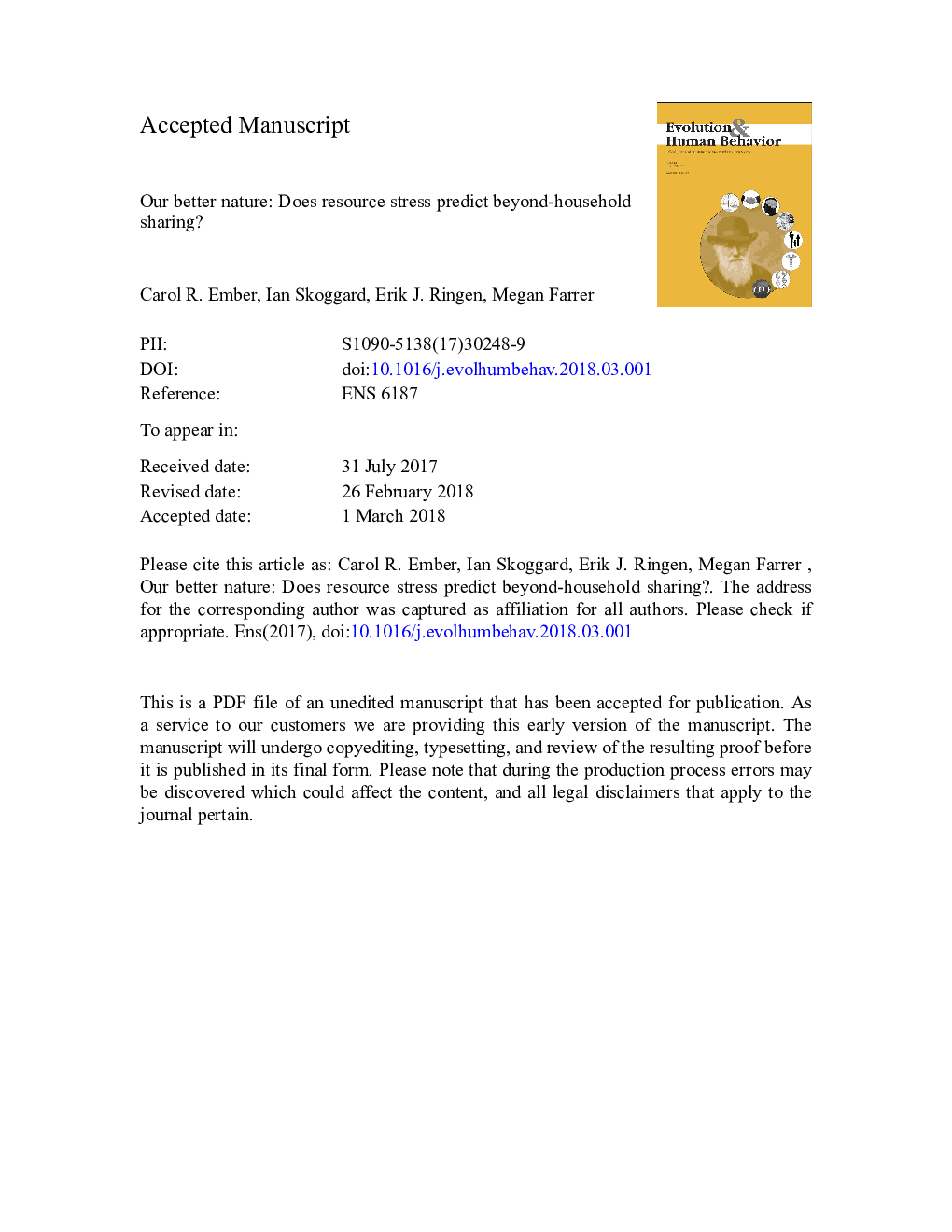| Article ID | Journal | Published Year | Pages | File Type |
|---|---|---|---|---|
| 7316167 | Evolution and Human Behavior | 2018 | 32 Pages |
Abstract
Food sharing and (to a lesser extent) labor sharing play central roles in the evolution of cooperation literature. One popular explanation for sharing beyond the family is that it reduces the likelihood of shortages by pooling risk across households. However, the frequency and scope of sharing have never been systematically documented across nonindustrial societies, and the literature is driven by theoretical models, experimental games, and case studies among a few extensively-studied populations. Here we explore the cross-cultural context, frequency, and scope of food and labor sharing customs in relation to resource stress. Using ethnographic data from a worldwide sample of 98 societies in the Standard Cross-Cultural Sample (SCCS), we test the following hypotheses: 1) customary sharing of food and labor beyond the household are cultural universals, 2) societies subject to more resource stress (including unpredictable food-destroying natural hazards) will share more frequently, and 3) the more frequent the resource stress, the broader the geographic and social scope of sharing customs. Hypotheses 1 and 2 are generally supported and are consistent with the theory that extensive beyond-household sharing is adaptive in societies that are subject to more resource stress. Hypothesis 3 was not supported and, contrary to our predictions, there is suggestive evidence that sharing beyond-relatives may be attenuated when resource stress is high. In light of these findings, we consider how resource stress may constitute an important selection pressure for maintaining extensive cooperation and help to explain the ubiquity of beyond-household sharing.
Related Topics
Life Sciences
Agricultural and Biological Sciences
Ecology, Evolution, Behavior and Systematics
Authors
Carol R. Ember, Ian Skoggard, Erik J. Ringen, Megan Farrer,
